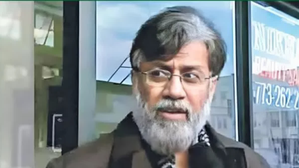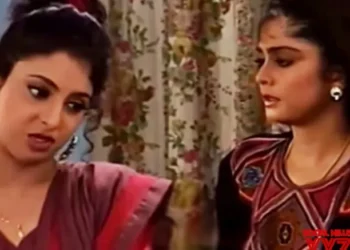Russian filmmaker Kirill Serebrennikov, whose film ‘Tchaikovsky’s Wife’ was screened at the 75th Cannes Film Festival on Wednesday evening, came out against Russia’s war on Ukraine.
“No to the war,” Serebrennikov, who’s seen as a critic of Russia President Vladimir :Putin, said in Russian as he received a standing ovation for his drama, which is the only film by a Russian director among 21 entered for the festival’s top prize, the Palme d’Or.
Serebrennikov, reports the France 24 TV channel, praised the festival for enabling Ukraine’s President Volodymyr Zelensky to make a live video broadcast from Kiev to the star-studded gathering at the opening ceremony on Tuesday evening. “That is a very special statement by the festival,” the director said.
Speaking to France 24, Serebrennikov said: “I am totally convinced that culture and people of culture can help ensure that this war ends. We need to tell ourselves that it will end one day and we will be able to live in peace.”
On the subject of art and war, he said: “All art, especially today, is kind of politics. Our political statement is about art, about freedom, and of course the fragility of human nature. War kills people, art is always about how vulnerable life is, and how important it is to save each life.”
The Russian filmmaker missed last year’s festival because of a travel ban after being found guilty in a 2020 fraud case linked to Moscow’s Gogol Centre theatre. He later moved to Berlin after a Moscow court suspended his three-year sentence.
The case drew international attention and prompted accusations that Russian authorities were targeting cultural figures who are at odds with Putin and his government, according to Radio Free Europe.
Hailed as a daring and innovative force on Russia’s modern art scene, Serebrennikov, before leaving Russia, took part in anti-government protests and voiced concern about the growing influence of the Russian Orthodox Church in the country, Radio Free Europe added.
Cannes Artistic Director Thierry Fremaux, Radio Free Europe reported, said the festival wrestled with whether to include ‘Tchaikovsky’s Wife’, which was partially financed by sanctioned Russian oligarch Roman Abramovich, in the competition. Organisers ultimately decided to allow it because it counters Russian state narratives and it was shot before the war and subsequent sanctions.
The movie highlights the destructive marriage of Russian composer Piotr Tchaikovsky to a young woman.
Set in the 19th century, the film portrays Tchaikovsky as a troubled but charismatic genius who prefers the company of men — a challenge to Russian propaganda, which has attempted to hide the famous composer’s homosexuality.





















